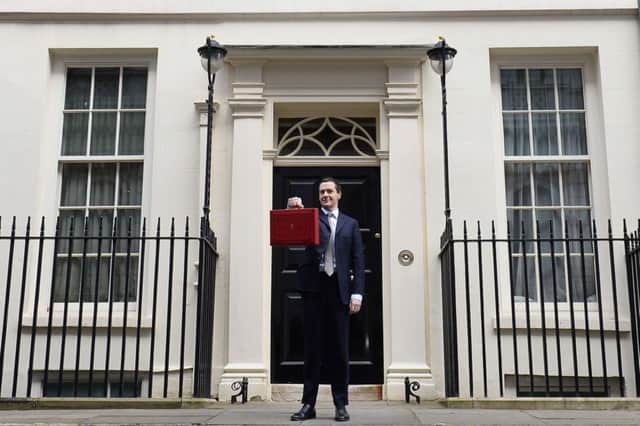Budget 2015: Decision delay on key tax allowance


Targeted primarily at smaller businesses, AIA allows firms to offset investment in plant and machinery against tax. Currently set at £500,000, the allowance is due to fall back to just £25,000 in the autumn – the fourth change in the limit since the beginning of 2013. Noting the forthcoming alteration to the allowance, George Osborne said the Autumn Statement due towards the end of the year would be “a better time to address this”.
“However, I am clear from my conversations with business groups that a reduction to £25,000 would not be remotely acceptable, and so it will be set at a much more generous rate,” he added.
Advertisement
Hide AdAdvertisement
Hide AdOrganisations such as the British Chambers of Commerce have called for a long-term freeze of the allowance at £500,000, while the Institute of Directors wants it increased to £1 million. The CBI wants it made permanent at £250,000.
David Ward, tax director at Johnston Carmichael, said many believe the allowance will be set around the £250,000 mark.
“It is a 100 per cent allowance so it is an incredibly significant factor for small companies that are looking to invest,” he said. “There is an expectation that it can’t just be allowed to fall off a cliff, but we will have to wait and see what happens later this year.”
He was more upbeat about proposals to encourage wider uptake of R&D tax credits, which have been hampered by the misconception that they’re only available to technology and science-based companies. Following a recent government consultation, a number of initiatives are planned, including an HMRC “road show” to raise general awareness.
Proposals to simplify the tax regime were welcomed. Andy Willox, Scottish policy convener for the Federation of Small Businesses, said the “abolition” of Class 2 national insurance contributions was symbolically significant in “underlining the increasing importance of the self-employed”.
Plans to scrap the annual tax return in favour of online management are another step in the right direction, according to ESpark founder Jim Duffy, reducing the administrative burden on small businesses and encouraging more start-ups.
“Being able to pay tax at any point in the year and being able to spread the cost to the business in instalments will allow start-ups to manage their cash flow effectively,” Duffy said.
Willox said governments in London and Edinburgh must ensure that more devolution doesn’t result in additional administration for small firms. Moves to simplify the tax regime in England should likewise be mirrored north of the Border.
Advertisement
Hide AdAdvertisement
Hide Ad“The Scottish Government should modernise taxes currently devolved and pass the collection of business rates and council tax to Revenue Scotland,” Willox said.
And he added: “Lastly, ministers in Edinburgh should commit to a business rates review run in parallel to the one launched by the Chancellor.”
SUBSCRIBE TO THE SCOTSMAN’S BUSINESS BRIEFING